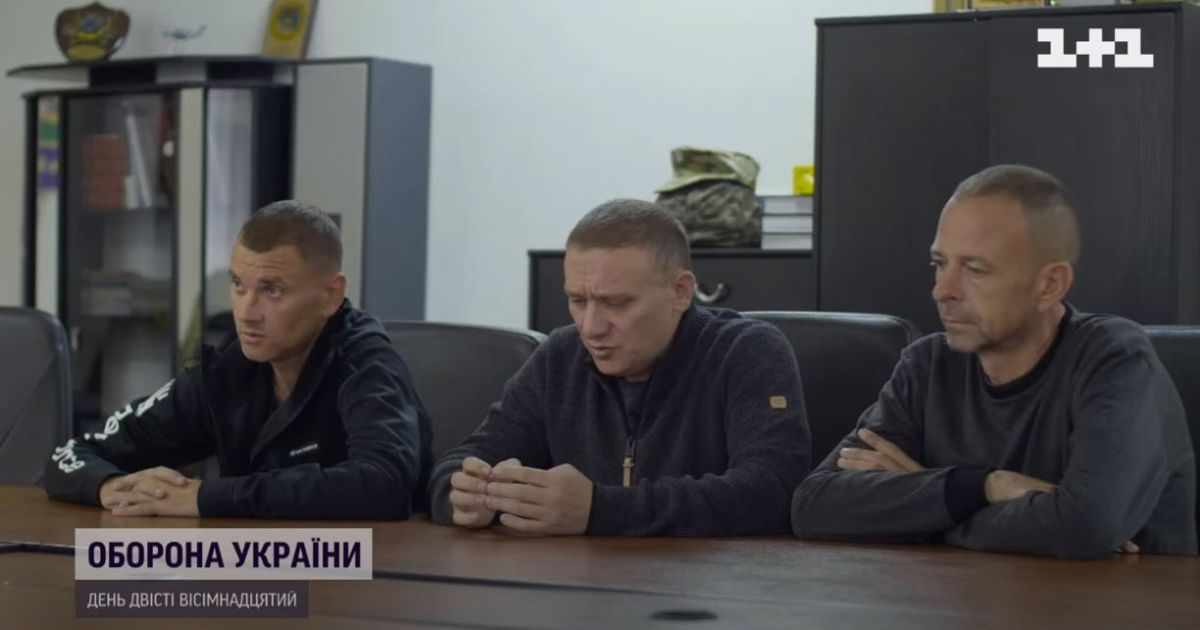According to the patronage service "Azov", about 800 defenders of Azovstal remain in Russian captivity.
Of them, 40 are women, some are pregnant.
90% of the returning defenders are morally and physically exhausted.
After all, they were fed in captivity only once and often in the middle of the night, says TSN.
In seven months, they went through a double hell - battles on "Azovstal" and a camp for prisoners.
Now they need the help of doctors, so former prisoners spend four to five hours a day in the rehabilitation department.
They already want to return to the army.
"Every day was hard, every day was different," says Valeriy Paditel, commander of the Donetsk border detachment.
He is one of the defense commanders of "Azovstal" who was able to be sent immediately to Ukraine during the exchange of prisoners.
His fighters covered the part of the factory-fortress that faced the coast.
"We had RPGs, so the rest of the squad was armed with machine guns," he says.
There were plans to break through to their own, but in April the garrison decided to abandon them.
"There were ideas to break through to Zaporozhye, but we didn't have the strength, and when we contacted the leadership in Kyiv, we understood that they didn't have the strength either. That's why we decided to hold the city as long as we can," the commander says.
The whole world knows that Azovstal was hell on earth.
The pause between airstrikes is from seven to fifteen minutes, and so for several months in a row.
Russian sailors from the Sea of Azov fired at the plant with impunity, fully understanding that not only military personnel were inside, but also civilians, and that the Ukrainian soldiers did not have such weapons to respond to these attacks.
"The ships were not afraid, they understood that we would not be able to get them. They were standing in the zone of our visibility," says Colonel of the DPSU Ihor Kucher.
Valery Paditel's fighters realized that they had a few days left to live if they did not leave.
But the defenders of "Azovstal" emphasize that they did not surrender, but fulfilled the order to survive.
At the negotiations with the Russian enemy, it was not about capture, but about evacuation.
"They were evacuating, and people were convinced that no one would surrender. Negotiations were held at the level of the GUR, I was at the negotiations when representatives of the GUR were present. We went under certain guarantees given by the Russian generals. After that, I realized that the word of the Russian general is equal to zero ", says the fighter.
As always, the Russians lied about the evacuation.
The commander felt that this could happen, so he gave the order to destroy the weapon so that it did not reach the enemy.
"I ordered the weapons to be destroyed. I did not give away any pistols or submachine guns," the commander assures.
The Russian camp in Olentsivka - everyone who was there assures - is a place where the existence of the international convention on the treatment of prisoners is hardly mentioned.
Volodymyr Galetsky lost more than fifty kilograms in captivity.
"The barracks stood for five to six hours, waiting for food. In the rain, not in the rain. To eat at least once a day. It could be at three o'clock in the morning or at one o'clock," Galetsky recalls.
"Constant feeling of hunger. I wanted to eat from morning till night," adds Paditel.
After his release from captivity, Colonel Ihor Kucher urgently needed to find a new uniform.
The old one turned out to be six sizes larger.
A video with him, in a new uniform, went viral on all social networks - the day after Igor was released from the hospital, he hurried to swear an oath to his son.
The younger Kucher also decided to become a border guard.
He did not know that his father would come.
"But we all cried when we saw it," the fighters say.
The commander says that Olenivka, where hundreds of Ukrainian prisoners remain, still allegedly does not let him go, he is still there in his mind, until each of his fighters is released.
Read also:
"They are changing the future": three Ukrainians entered the Time rating (photo)
The Armed Forces of Ukraine "minus" enemy strongholds, command posts, air defense positions and a relay station
In Crimea, they decided to get rid of the Crimean Tatars: they are mobilized the most in order to throw them into the hottest spots
